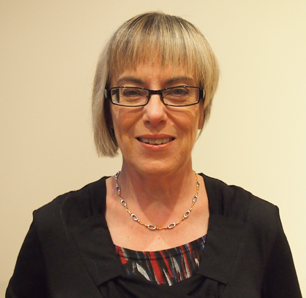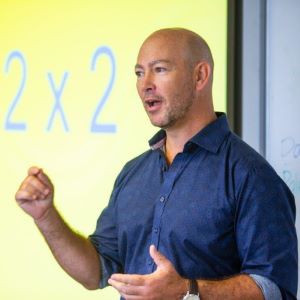The Big Six of Reading
with Anne Bayetto
Registrations now open.
A series of online workshops on Wednesdays, starting at 9:30am.
20 March - Introduction and Oral Language
17 April - Vocabulary
8 May - Phonological Awareness
5 June - Letter Sound Knowledge
19 June - Comprehension
24 July - Overarching Fluency
All sessions are 2.5 hours except the first session on 20 March, which will be 3 hours.
Learn about the six key skills (Big 6) for learning to read.
Current research identifies 6 broad areas of development required for reading, all underpinned by early literacy experiences. The Big Six in reading are:
- Oral language
- Phonological awareness
- Letter-sound knowledge (phonics)
- Vocabulary
- Fluency
- Comprehension
Some adults who have difficulties reading, or can't read at all, are likely to have missed out on learning one or more of these skills. Working with adults to gain these skills can markedly improve their reading (and writing) ability.
These workshops will focus on effective approaches for working with adults who have little or limited literacy skills. There will be a particular focus on the Big Six, including practical approaches for the development of these skills.
About the trainer

Anne Bayetto is a Researcher and Lecturer in Special Education at Flinders University.
She has been the reading expert for the Principals as Literacy Leaders (PALL) program, offered in every state of Australia. Through this program, she has been part of a team gathering pre- and post- data from PALL participants and later undertaking case studies in schools to learn about effective, long-term approaches. This research has been published in reports back to Education Departments, journals, book chapters, and a purposely written book.
Anne is a member of the Research in Inclusive and Specialised Education (RISE) group at Flinders University and works collaboratively with colleagues to advance knowledge and practice.
While her work is mostly with K-12 teachers, she has adapted her workshop to focus on strategies for working with adults.
Mastering Numeracy Instruction
with Dr Damon Whitten
Registrations now open.
A series of two- and three- part online workshops
Each workshop is from 12:30 – 1:30pm
Numeracy Toolbox 1: Developing number skills
This online, three-part course focuses on high-quality numeracy instruction for adult learners, focusing on number skills. It addresses participants' understanding of number skills, promotes effective teaching methods, and introduces various practical resources. This course is suitable for literacy practitioners and tutors who are new to numeracy, dislike numeracy, or love numeracy and want to teach it better. The approaches presented will be useful for group learning and one-on-one instruction.
This course is 3 x 1 hour sessions. Please register for all three. If you can't attend all the sessions, recordings will be available. Keep in mind that due to the interactive nature of the course, participating in person is recommended for a more effective and engaging learning experience.
Monday 8 April
Wednesday 10 April
Monday 15 April
Numeracy Toolbox 2: Fractions, decimals, percentages, and proportional reasoning
This online, three-part course focuses on high-quality numeracy instruction for adult learners, focusing on proportional reasoning skills, and fractions, decimals and percentages. It addresses participants' own understanding of these domains, promotes effective teaching methods, and introduces a range of practical resources useful for groups and one-on-one instruction.
This course is 3 x 1 hour sessions. Please register for all three. If you can't attend all the sessions, recordings will be available. Keep in mind that due to the interactive nature of the course, participating in person is recommended for a more effective and engaging learning experience.
Wednesday 22 May
Monday 27 May
Wednesday 29 May
Numeracy Toolbox 3: Exploring dyscalculia in adult learners
Dyscalculia is sometimes referred to as the 'maths version of dyslexia', yet the differences between the two are vast. Dyscalculia is a neurodiversity that impacts how children process magnitude, numbers, and eventually arithmetic problems. This can make school mathematics deeply unpleasant, in fact often an assault on their sense of self-worth. By the time these children become adults, these negative experiences and ongoing difficulties have often consolidated into deep beliefs about their own mathematical inadequacy. Imagine if we could make a difference to their numeracy skills and beliefs about themselves!
We can make a huge difference. Although the dyscalculia landscape is yet to be fully mapped, and the adult landscape even more so, we can put in place some established practices to support adult learners with dyscalculia. In this workshop we will explore what dyscalculia is, what the research has discovered, and, most importantly, how we might work successfully with adults with dyscalculia.
Topics covered
- How is dyscalculia conceptualised and diagnosed?
- What does the research reveal about how dyscalculia interferes with numeracy development?
- What strategies can be employed to work with dyscalculic adults?
This course includes 2 one-hour workshops. Please register for both. If you can't attend both sessions, recordings will be available. Keep in mind that due to the interactive nature of the course, participating in person is recommended for a more effective and engaging learning experience.
Wednesday 7 August
Wednesday 14 August
About the trainer
 Dr Damon Whitten is a specialist provider of professional development to the tertiary sector, focusing on adult literacy and numeracy. He focuses on generating and connecting research to real-world contexts and using the results to develop effective teaching and learning approaches. Damon is at the forefront of adult education and works toward empowering and reengaging adult learners with their dreams, passions and potentials through numeracy and literacy education.
Dr Damon Whitten is a specialist provider of professional development to the tertiary sector, focusing on adult literacy and numeracy. He focuses on generating and connecting research to real-world contexts and using the results to develop effective teaching and learning approaches. Damon is at the forefront of adult education and works toward empowering and reengaging adult learners with their dreams, passions and potentials through numeracy and literacy education.
Introduction to the Australian Core Skills Framework
with Harry Atkinson
Registrations now open.
Wednesday 10 July
10:30 am - 4 pm
The Grange, Campbell Town, Tasmania
This face-to-face workshop is for those who are new (or nearly new) to the ACSF framework, including:
- new or aspiring Language, Literacy and Numeracy (LLN) practitioners
- 26TEN project managers
- participants in the Tutor Adult Literacy Learners (TALL) TasTAFE program who would like to increase their knowledge of the ACSF
- anyone involved in projects that use the ACSF.
Come along and discover what the ACSF is and how it can be used to:
- assess learner core skills
- identify the core skill requirements of training and/or a work/job role
- develop your own core skill assessment tasks
- make assessment decisions in reading writing, oral communication and numeracy.
About the trainer